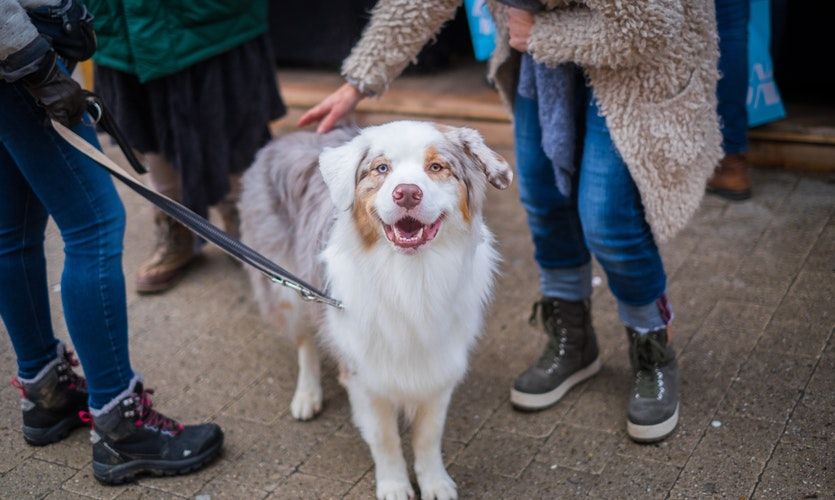Dogs on campus: just pets or worker pups?
Seeing a dog on campus is almost like spotting a celebrity, with crowds forming around the four-legged friend who can’t quite contain its excitement. As a nation we love dogs so much, such that a dog is the most popular pet in the UK, with 26% of our population having their own pooch to pamper.
Doggy-destress days are organised in almost every single university across the country, whereby students can spend some time with a dog very grateful for the attention. However, it appears that these events serve a much greater purpose than just to let dog lovers who miss their own pups receive some dog time. Supported by a Canadian study, events of such nature reveal a 45% reduction in stress amongst students.
Closer to home, at the annual conference of British Sociological Association, held at Northumbria University, academics gathered and asked an important question – are dogs at these events pets, or are they actually workers?
A dog is the most popular pet in the UK, with 26% of our population having their own pooch to pamper
To answer this question, Professor Nickie Charles, director of University of Warwick’s Centre for Study of Women and Gender, along with a reader from the Sociology Department, Dr Carol Wolkowitz, observed therapy dog visits. Along with their observations, they carried out 16 interviews with dog owners, library staff, and the students attending.
Their answer to the question seemed decisive, as Charles concluded that: “They are working… [The dogs] have to behave in a particular way, which involves work and effort. They are really tired at the end of it.”
In their study, Professor Charles and Dr Wolkowitz observed that several of the dogs attending showed signs of excitement at the sight of their ‘uniform’ or when arriving onto campus. Many of the owners, however, discovered that the dogs found the sessions quite tiring – which, let’s be honest, is understandable when you’re the centre of attention of so many people at the same time.
They are working…They are really tired at the end of it
Professor Charles raised the issue of attempting to understanding these sessions from the “dogs’ point of view”, as well as the students’, which she argued could offer a “more multi-faced understanding of the interaction that’s taking place.”
“There’s an approach that says that animals are just there for us to put to work and use them as we see fit. It’s time we started to think more carefully about that”, Charles adds.
Whilst these findings may not mean much for dogs’ employment rights, it’s pretty fair to say the dogs at least deserve more treats for all their great work. It’s a fact that’s often ignored, that our society would be very different if animals were not a part of it. So next time you attend a doggy-destress session at the library, make sure you show your gratitude to the hard-working tail-wagging volunteer pups.

Comments